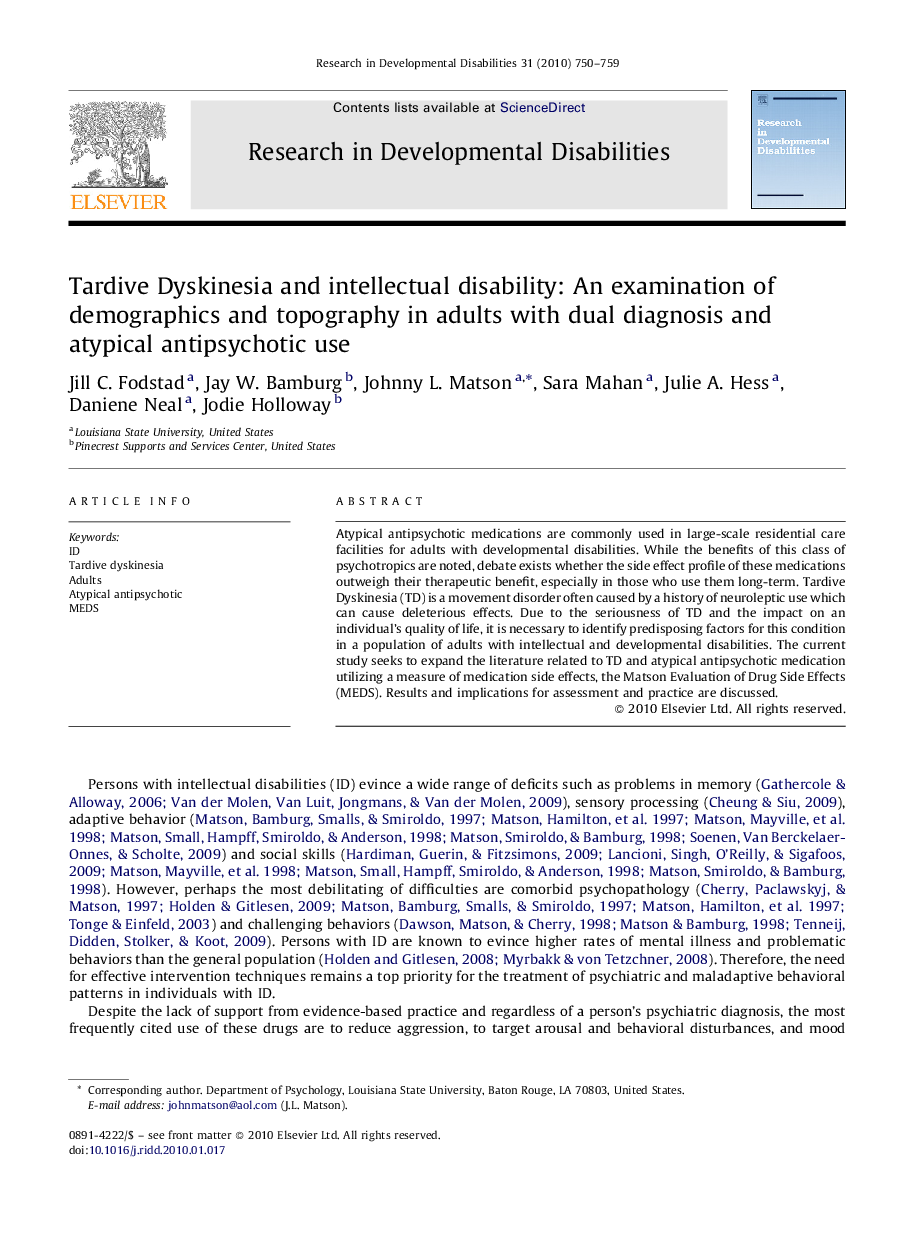| Article ID | Journal | Published Year | Pages | File Type |
|---|---|---|---|---|
| 371342 | Research in Developmental Disabilities | 2010 | 10 Pages |
Atypical antipsychotic medications are commonly used in large-scale residential care facilities for adults with developmental disabilities. While the benefits of this class of psychotropics are noted, debate exists whether the side effect profile of these medications outweigh their therapeutic benefit, especially in those who use them long-term. Tardive Dyskinesia (TD) is a movement disorder often caused by a history of neuroleptic use which can cause deleterious effects. Due to the seriousness of TD and the impact on an individual's quality of life, it is necessary to identify predisposing factors for this condition in a population of adults with intellectual and developmental disabilities. The current study seeks to expand the literature related to TD and atypical antipsychotic medication utilizing a measure of medication side effects, the Matson Evaluation of Drug Side Effects (MEDS). Results and implications for assessment and practice are discussed.
